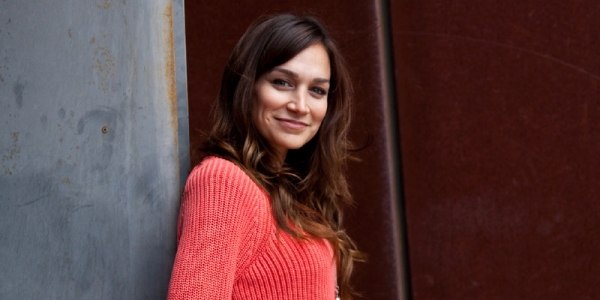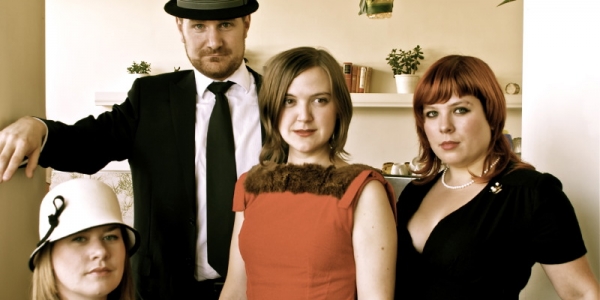“It was written in the ‘30s and it’s based on a true story from a little Spanish village where a woman was about to get married, and on the day of her marriage she ran off with her teenage love. Her sister, among others, went and tried to kill the two of them and the bride actually survived. But it’s a really powerful story that for this small village was huge at the time and even now has repercussions, because they still won’t talk about it. They still won’t acknowledge that Blood Wedding was written because of it. So it’s quite interesting culturally. It’s a pretty huge deal.”
In a pared back production to be staged at The Malthouse, Blood Wedding shows us the romantic variants popular culture necessarily avoids, eschewing the formulaic and providing something of an anti-ending by Hollywood standards. De Silva plays the ousted annex of a love triangle, the forgotten wife of Leonardo, whose repressed love affair with a character called The Bride lands his wife “on the rough end of his desires.”
“(She’s) very much the outer (of a love triangle). It’s a very sad journey my character goes on unfortunately,” she says, reflecting on her own understanding of the role. “I think love is such a delicate and difficult game that of course there are things that you’re going to draw on for a particular role.”
Drawing on real events adds universality to the production, says the actor, in a Romeo and Juliet style story that transcends its Spanish setting. “Though we do delve into the ethereal and the symbolic, everything is grounded in this earthy sense of what it is to be human, and what it is to love, and what it is to cave to our desires and impulses.”
One of the outward expressions of this carnality is the use of violence, which is expressly implied by the title. “Lorca was pretty specific when he called it Blood Wedding. What’s great about Lorca and the Spanish culture specifically is that they embrace not only the lighter side of life, and the light side of love, but the dark side. And inherent in that is violence. A dark passion and a dark desire that we’ve all experienced and sometimes we succumb to for good or bad. So Blood Wedding is true to its title.”
To heighten the drama of Lorca’s prose with musical embellishments The Malthouse have brought on a highly qualified Tim Rogers (You Am I frontman) to provide artistic soundscapes. The cast have enjoyed working with the guitarist, though he’s a distance from his local-venue roots. “He’s great. He’s so much fun and certainly a talented musician and composer, and he brings a really great collaborative energy to the room.”
His work in the piece has been in animating the poetry of the play. “There are chunks in the texts that are poetry, or the next passages should be sung, or there’s violins and guitars. So it’s music that he’s imposed on it, and Tim’s job has been to extrapolate that and give his own flavor. Certainly on the Spanish heritage of the piece, but to also make it Australian. And make it accessible to audiences.”
Although originally set in rural Spain the direction haven’t been too specific about time period and setting, extrapolating and pulling apart the original to the fact that this is an Australian production, says De Silva. Director Marion Potts was perhaps behind the decision to simplify the piece to covey a greater meaning. “It’s quite a simplistic set and it’s quite bare. So she’s given a lot of power to the actors and to the power of performance for us to convey these stories, and convey what’s going on.”
Though it does remain true to the bilingual nature of the play. The entire cast speak Spanish and English throughout. Lorca, says De Silva, uses fierce imagery and poetry to convey meaning without necessarily adhering the literal or the real. “He kind of goes for grand theatrical images, and uses theatrical devices like song and poetry. I think it’s going to be a really beautiful piece. Aesthetically, and emotionally.”
And as a result, in casting the play its actors have found themselves in a lively rehearsal room full of Spaniards and South Americans – Silvia Colloca is Italian, De Silva’s Portuguese. The “firey blend of cultures” is a melting pot representing a mixture of origins not often seen in contemporary theatre. “Australia’s such a multicultural place and so often in the industry that just isn’t reflected on stage or screen. But I think it’s going to be quite an enlightened experience, and I think above all it is a theatrical experience in all senses of the word.”
The tragedy transcends culture, time and race in a feat of realism, and narrates all of our demons.
BY BELLA ARNOTT-HOARE

